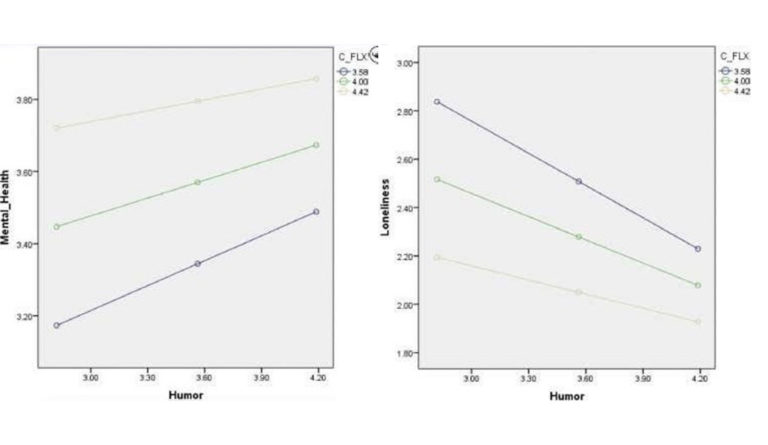A Joke a Day Keeps the Doctor Away
Humor is associated with increased mental wellbeing and decreased loneliness and headaches.

Read Time: 2 minutes
Published:
You know that feeling when a joke falls short? The awkward silence made louder by the absence of laughter and the sinking feeling of: How do I recover from this? Well, it turns out that the joke is on you. People who are funny and make others laugh have better health outcomes, according to the work of Curran, Janovac, and Olsen who analyzed the effects of humorous communication on physical and mental health.
Their study was based on surveys completed by 406 college students in the western United States. Humorous communication was measured by asking respondents, “How often you think you communicate with a humorous tone,” “How well you remember jokes,” and “How often people ask you to tell jokes or stories and laugh when you do.” The researchers also asked questions about mental well-being, headache frequency, and sleep patterns.
The graphs above show the correlation between humor, mental wellbeing, and loneliness. The three different colored lines represent levels of cognitive flexibility. Cognitive flexibility is the ability to adapt or adjust one’s thinking to a social environment. The researchers found that humor was associated with increased mental wellbeing and decreased loneliness and headaches. Higher levels of cognitive flexibility amplified the benefits of humor.
There are some explanations for these findings. First, humor can increase a person’s emotional management and improve interpersonal awareness and knowledge. Headaches are thought to be associated with increased stress; humorous communication can increase one’s ability to cope with stress and could be responsible for the decrease in headache frequency. However, not all jokes are created equal. The researchers reported that self-deprecating, aggressive, and inappropriate humor can lead to low social satisfaction, increase distress, and harm relationships, at least among college students.
As we slowly come out of prolonged social isolation and stress due to Covid-19, it is important to create opportunities for humor. Should we make time for office and classroom stand-up routines?
Databyte via Timothy Curran, Anastacia Janovec & Kimberly Olsen (2019): Making Others Laugh is the Best Medicine: Humor Orientation, Health Outcomes, and the Moderating Role of Cognitive Flexibility, Health Communication, DOI: 10.1080/10410236.2019.1700438



